How Joe Hockey became our Mr Fixit in Washington
He not only wanted to be prime minister but expected that he would be. Instead, the former federal Treasurer left Australia behind to play key roles in a turbulent era in Western politics.
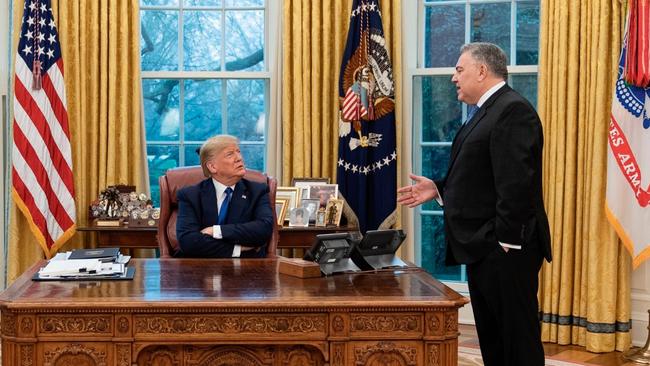
When Joe Hockey departed for Washington DC as the 25th Australian ambassador to the US, he left behind his ambition to be prime minister. The former treasurer, who lost his portfolio when Malcolm Turnbull toppled Tony Abbott in 2015, dreamed of leading the nation one day.
He not only wanted to be prime minister but expected that he would be, and a good one too. Becoming a diplomat, after serving as a minister in the Abbott and Howard governments, was not a bad consolation prize and went some way to assuaging his thwarted ambition. He was an effective ambassador.
In a new memoir of his four years in the US, spanning the history-making presidencies of Barack Obama and Donald Trump, Hockey writes how difficult it was to resign as treasurer, and then from parliament, to take up the diplomatic appointment.
“I wanted to be prime minister,” Hockey writes in Diplomatic: A Washington Memoir, co-authored with Leo Shanahan. “I felt I was walking away from the electorate, and from a lifetime of ambition. From the time I was just 14, people had told me I’d one day be prime minister – and now that dream was gone.”
What Hockey does not write in the book but revealed in an interview with The Australian this week is that he believed he had an understanding with Abbott that he would hand over the prime ministership at some point during the Coalition’s term in government. “You’ve got an exclusive,” Hockey said.
When Turnbull seized the prime ministership, that meant the end of Hockey’s time as treasurer. Turnbull made his own deal with Scott Morrison. “Morrison had agreed to back him in the leadership challenge, and in return Morrison would become treasurer,” Hockey writes.
Turnbull offered Hockey the Defence portfolio but that held little interest. Turnbull raised Washington, given Kim Beazley’s appointment was coming to an end. Peter Costello, according to Hockey, wanted the job. Hockey insisted Turnbull put the promise in writing and it was announced three months later.
Hockey is kind to Abbott and describes him as humble, gracious and decent. They had had differences in the past but worked well together as treasurer and prime minister. Years earlier, in 2009, Hockey found himself in a three-way contest to lead the opposition after Turnbull’s leadership imploded over Labor’s emissions trading scheme.
Hockey was eliminated after the first ballot and Abbott defeated Turnbull by 42 votes to 41. “I was poised to become leader of the Liberal Party, which would give me a shot at contesting for the prime ministership,” Hockey writes.
After nearly winning the 2010 election, leaving the Gillard government with a minority of seats, Abbott and Hockey focused on the 2013 election. Once in government, they turned their attention to budget repair. The so-called “horror” budget of 2014 broke a range of election promises. Hockey stands by it but accepts they could have done better to marry the policy with the politics.
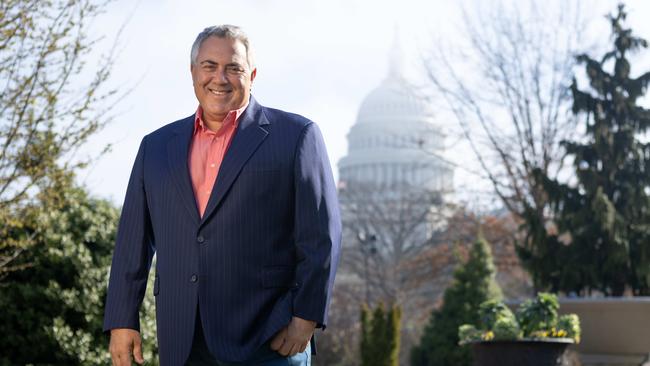
“The 2014 budget was absolutely right,” he writes. “Budget repair will never be popular. It was well received by the people who understood what we were trying to do, but there were various ministers who weren’t prepared to defend the decisions in their portfolios.”
Hockey writes that “some ministers” tried to sabotage the budget by working with independent senators to torpedo measures. He accuses the party room of being selfish and claims several MPs were bent on destroying the government, which left him “disgusted” and “distrustful” of his colleagues.
Diplomatic is an engaging book with a conversational style that provides an insightful perspective on politics and policy alongside personal reflections. Hockey, who grew up with US sitcoms, movies and food, and admiration for US entrepreneurial and civic spirit, was struck by how large and diverse the US is, and the violence and poverty.
“The US has always been divided and nothing demonstrates that better than the Civil War, and there have been a vast number of social and political movements that have led the US to becoming a swelling mass of contradictions at times,” Hockey, 56, says.
“They can be the most generous people on Earth and then they can be toughest on their own people. They can go to defend the rest of the world, but they fear each other, which is why they carry guns. These contradictions place enormous political pressures on whoever is running Washington.”
He praises Obama’s grace and dignity, and writes his presidency was “almost entirely scandal-free”. He found Obama charming and welcoming when he presented his diplomatic credentials. But Obama could also be tough, and had asked Abbott to stop Australian iron ore exports to China and not join the Asian Infrastructure Investment Bank.
Hockey decided to engage with the Trump campaign during 2016, meeting with staff and attending the Republican Convention, believing he had a chance of being elected president. But this caused consternation in Australia. Turnbull and foreign minister Julie Bishop were not keen on the idea and nor were senior public servants.
This engagement paid off when Trump clashed with Turnbull and threatened to exit the refugee swap deal negotiated with Obama. Hockey told the White House that not only was the alliance critical but he was also “owed” a favour for taking Trump’s campaign seriously. It worked. Hockey believes “mateship” and the alliance alongside personal diplomacy is also the reason why Australia avoided punitive steel and aluminium tariffs and quotas.
But his approach to Trump continued to make Turnbull and Bishop uncomfortable. Turnbull was not sure whether Hockey should play golf with Trump. And he did not encourage the idea of a Trump visit to Australia. Accordingly, Hockey limited what he reported back to Australia about his engagement with the Trump administration. And he was “diplomatic” in how he approached Trump.
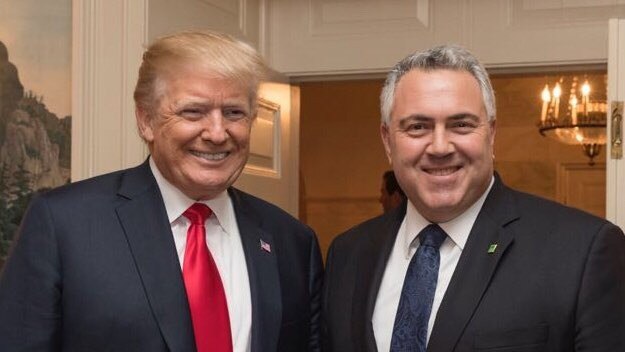
“I was utterly appalled with some of his behaviour,” Hockey says of Trump. “But I find him engaging and I quite like him. He doesn’t drink, so he is not the sort of guy you go and have a beer with but he’s quite entertaining, he’s self-deprecating, he has a curious mind. So, there is a contradiction between the public Trump and the private Trump.”
In 2016, Alexander Downer met with Trump adviser George Papadopoulos at a London bar and reported to the Americans that Russia might use information to damage Hillary Clinton in the election. It led to a secret FBI investigation into Trump’s Russia links.
Turnbull told Hockey that Downer, then high commissioner to the UK, should not have reported the Papadopoulos meeting to Americans. But Hockey did not think Downer did anything wrong. But it did make Trump angry and he often referred to Downer as “Downing”.
Trump and Turnbull repaired their relations so much that when Morrison became prime minister it “did not go down well in the White House”, Hockey writes. “Why did you guys get rid of Turnbull?” Trump asked Hockey. The president was beginning to like the deposed PM. Trump thought Morrison would lose the 2019 election and initially did not want to meet him but the prime minister soon became the president’s “global bestie”.
So what was the turning point in the Trump-Morrison relationship? Hockey relays a funny and revealing story about the Trump-Morrison dinner at the Osaka G20 in 2019. The PM’s office feared it was about to be “ambushed”. The Australians feared Trump would dump the tariff exemptions.
Yet there was only one item for discussion: how Morrison won the election. “You’re a winner! Amazing work. How’d you do it?” Trump asked. He had also won an election against the odds. Hockey writes that Trump “only wanted to be associated with winners”. Trump called Bill Shorten “a loser” and was not surprised given he had said “nasty things” about the president.
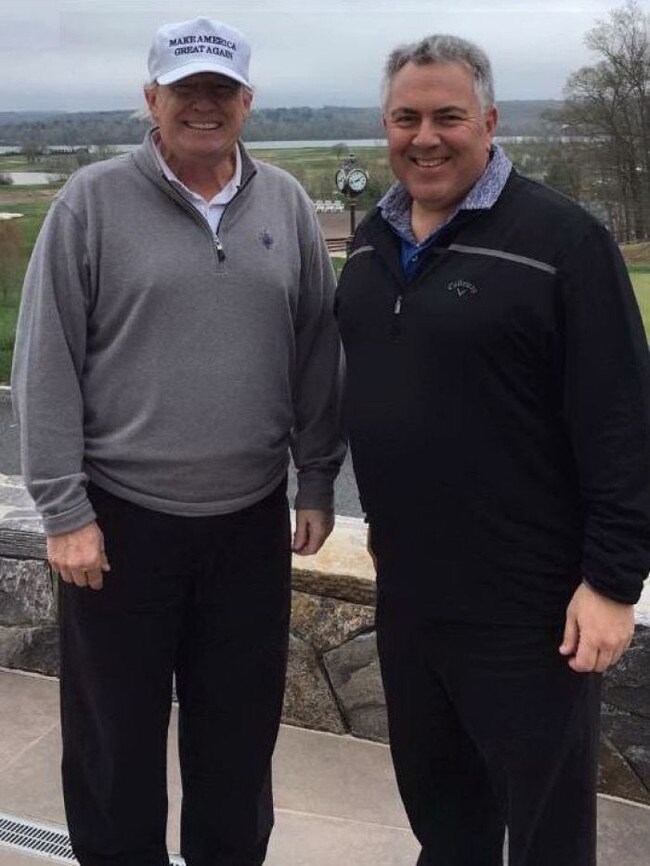
In 2018, Hockey predicted Trump would be re-elected. In 2020, he predicted that Michael Bloomberg would become the Democratic nominee for president. But Trump’s “significant failures” and “disastrous leadership” in response to Covid, Hockey writes, were his downfall. Trump became a “laughing stock” when he suggested injecting disinfectant to cure Covid.
After the 2020 election, Hockey seemed to give credence to Trump’s claims of electoral fraud. But in Diplomatic, he indicts Trump for making “false” and “dangerous” claims about election rigging. Hockey also holds Trump responsible for the storming of the Capitol. “(It) could have been avoided” if Trump used his authority to “defuse the situation”, Hockey writes. He told Inquirer that the US people made the right decision to elect Joe Biden President.
While the Republican Party remains in Trump’s grip, Hockey does not expect him to run again for president in 2024. Why? Fear of being “a two-time loser”, Hockey says. He also suspects Biden, whom he says is “a very decent man” who had an “impressive” election victory, and praises his presidency thus far, won’t run for a second term either.
Back home, Hockey won’t be drawn on whether the Morrison government deserves re-election or will be re-elected. He will, of course, vote Liberal but declines to “run commentary” and will leave predictions for others. He is being diplomatic.
Hockey insists, despite not realising his ambition to be prime minister and being “cut down” as treasurer, that he is not bitter and has moved on from politics. Being ambassador enabled him to “continue to serve” and he is sure that he “made a difference” in Washington. He did.
“I was angry and I wanted to inflict pain on the people who had caused me and my family and my supporters pain, but I was lucky that the job as ambassador consumed me and prevented me from ever doing that,” he reflects. “So, it did go some way to addressing unfulfilled ambition.”
Diplomatic: A Washington Memoir by Joe Hockey with Leo Shanahan, published by HarperCollins. Out Wednesday.


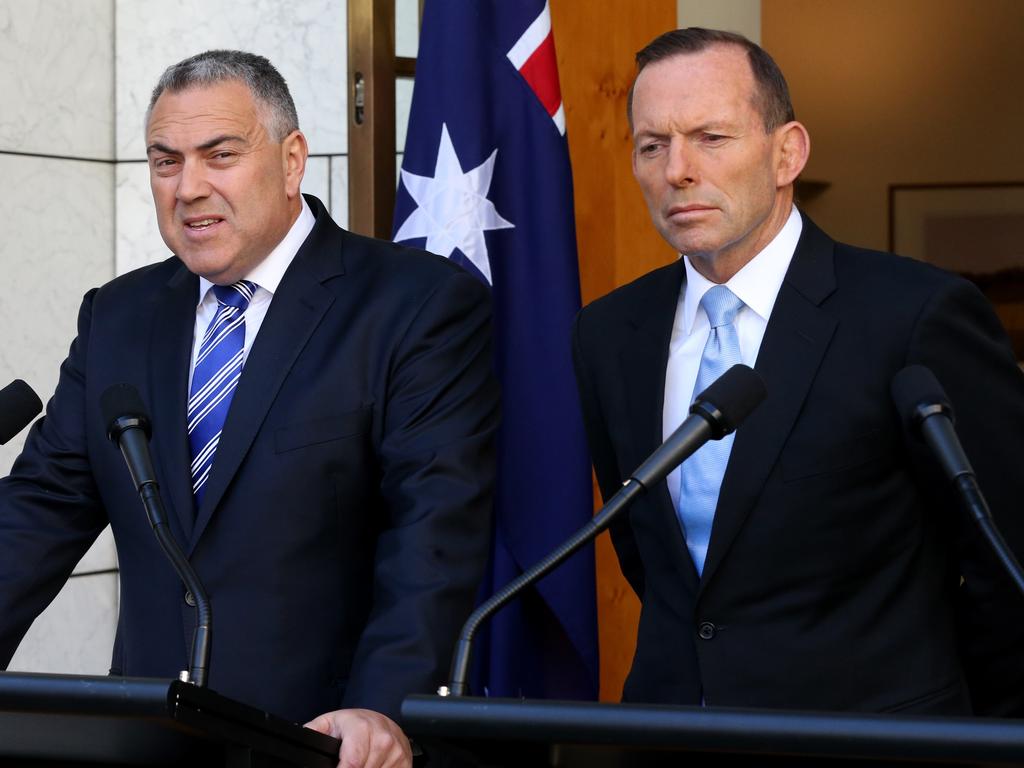
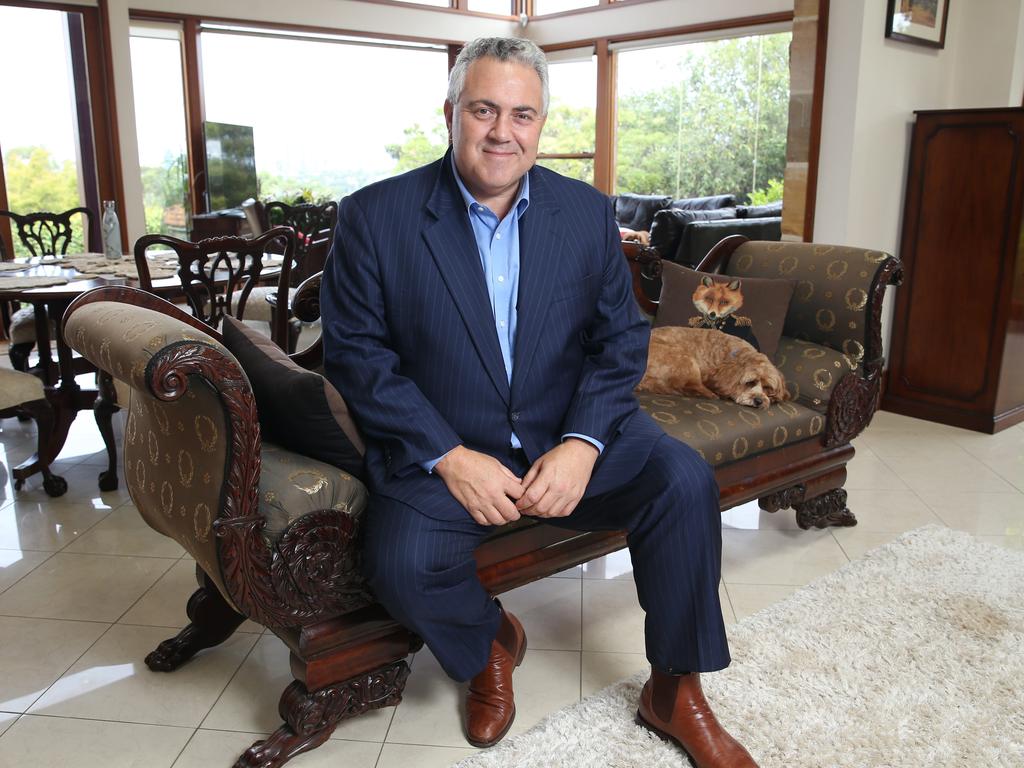


To join the conversation, please log in. Don't have an account? Register
Join the conversation, you are commenting as Logout